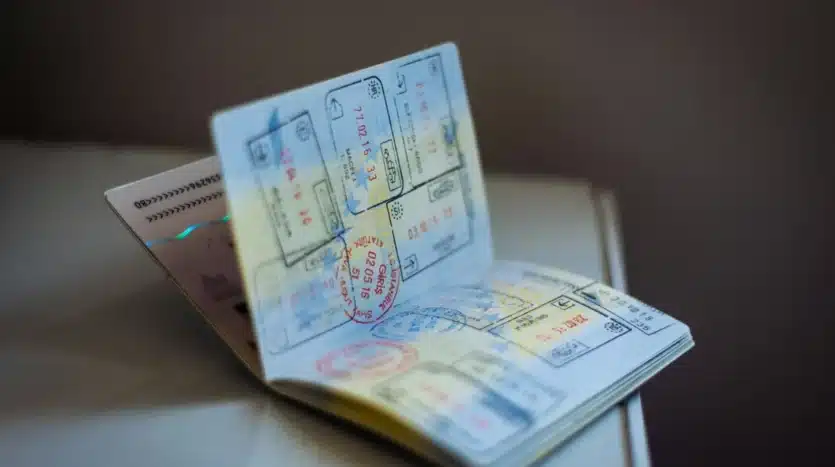Indonesia Visa for Japanese Citizens: Full Moving Guide
Indonesia Visa Process for Japanese Citizens: What You Need to Know Before Moving
Relocating to Indonesia has become increasingly common among Japanese professionals, entrepreneurs, and retirees. According to the Indonesian Ministry of Manpower, Japanese nationals consistently rank among the top expatriate groups in Indonesia, with thousands living in Jakarta, Surabaya, and Bali. Strong business ties between Japan and Indonesia, coupled with attractive lifestyle opportunities, have encouraged more Japanese citizens to explore long-term stays. However, before settling into a new apartment in Jakarta’s bustling city center or a quiet villa in Bali, understanding the Indonesia visa process is a crucial first step.
Why Japanese Citizens Are Moving to Indonesia
The appeal of Indonesia for Japanese citizens is rooted in both professional and lifestyle opportunities. Japan is one of Indonesia’s largest trading partners, which means Japanese companies maintain significant operations in manufacturing, energy, and infrastructure. As a result, Japanese employees are frequently posted to Indonesia for multi-year assignments.
Beyond corporate relocations, lifestyle factors play a role. Bali, with its vibrant cultural scene and relaxed pace of life, has long been a favorite for retirees. Meanwhile, Jakarta and Surabaya attract young professionals seeking career growth in Southeast Asia’s largest economy. For families, international schools and established Japanese communities provide a sense of familiarity while living abroad.
Visa Options for Japanese Citizens
When planning a move, the choice of visa depends on the purpose and duration of stay. Japanese citizens enjoy visa exemptions for short visits, but longer stays require the right documentation.
Short-term Stay (Tourist and Social Visit Visa)
For holidays or family visits, Japanese citizens can enter Indonesia without a visa for up to 30 days. This exemption cannot be extended, so anyone considering a longer stay should apply for a Social Visit Visa, which allows for 60 days and can often be extended.
Business Visa
Business visas are common for professionals attending meetings, seminars, or handling investment matters. They are available in both single-entry and multiple-entry options, with the latter valid for up to 12 months. However, business visas do not permit formal employment.
Work Visa and KITAS
Those who plan to work in Indonesia need a work visa supported by a sponsoring company. This process leads to a KITAS (Temporary Stay Permit), which is one of the most important documents for expatriates. The KITAS allows Japanese citizens to legally live and work in Indonesia, and it can be renewed annually.
Retirement Visa
For Japanese citizens over 55 years of age, Indonesia offers a Retirement Visa, particularly popular in Bali. Applicants must demonstrate proof of financial stability, health insurance, and long-term accommodation such as a lease agreement for a house or apartment.
Permanent Stay Permit (KITAP)
After several years on a KITAS, it is possible to apply for a KITAP, which grants permanent residency status. This option is attractive for long-term residents who wish to settle permanently.
Visa Application Requirements and Process
The process for obtaining a visa typically starts with gathering the required documents, including a valid passport, sponsorship letters (for work or retirement visas), and proof of accommodation. Most applications can be initiated online through Indonesia’s immigration system or at the Indonesian Embassy in Tokyo.
Processing times vary, but applicants should generally expect several weeks for approval, especially for work visas and retirement permits. Costs also differ depending on the visa type. One common mistake is underestimating the need for a local sponsor, which is mandatory for most long-term visas.
Renewal rules are also important to understand. KITAS holders, for example, must renew annually, while retirement visas typically require proof of ongoing accommodation and financial capability.
Preparing for the Move Beyond the Visa
While obtaining the right visa is a critical step, Japanese citizens should also consider practical relocation needs such as housing, cost of living, and essential services.
Housing and Apartment Rentals for Japanese Expats
Housing is often the most immediate concern once the visa is secured. In Jakarta, popular areas for Japanese expatriates include Sudirman, Kuningan, and Senayan, where serviced apartments and high-rise condominiums are widely available. These locations are close to business districts, international schools, and Japanese restaurants, making the transition smoother.
In Bali, retirees often choose areas such as Sanur or Canggu, where villas and apartments cater to long-term expats. Rental contracts in Indonesia typically require a one-year lease paid upfront, which can be a surprise for newcomers. Serviced apartments, while more expensive, offer flexibility with shorter contracts and include utilities, cleaning, and security services.
Cost of Living Considerations
Compared to Japan, the cost of living in Indonesia is lower, but it varies by city. Monthly rent for a mid-range apartment in Jakarta can range from USD 600 to 1,500, depending on the location and amenities. Utilities and transportation add to the budget, though many expats find daily expenses like food and services more affordable. Healthcare and international insurance, however, should not be overlooked.
Banking, Taxes, and Insurance Setup
Opening a local bank account often requires a KITAS, so having the visa in place simplifies financial management. Japanese expats should also be mindful of Indonesia’s tax regulations, as residency status can affect global income reporting. Health and life insurance should be arranged before departure, as local coverage may not always meet international standards.
Cultural and Lifestyle Adjustments
Relocating is not just about paperwork and housing. Japanese citizens should prepare for cultural differences as well. Bahasa Indonesia is widely spoken, and while English is common in business, learning basic Indonesian phrases is valuable for daily life. Business etiquette emphasizes relationships and patience, which can differ from Japan’s more formal style.
For families, Indonesia has several international schools with Japanese sections, particularly in Jakarta. Active Japanese associations and cultural organizations also provide support, making integration into the local community easier.
Useful Resources and Services
To make the transition smoother, Japanese expats can turn to relocation agencies that specialize in handling both visa processing and housing arrangements. Legal consultants can assist with lease agreements, ensuring expats understand their rights and obligations as tenants. Online forums and embassy resources also provide up-to-date guidance.
Final Tips Before Moving to Indonesia
Before boarding the flight, it helps to have both a visa checklist and a housing checklist in hand. Ensuring that visa documents are complete and understanding accommodation terms will prevent last-minute stress. Planning ahead makes the move to Indonesia not only smoother but also more enjoyable.
FAQs
Do Japanese citizens need a visa to enter Indonesia?
Japanese citizens can enter Indonesia without a visa for short stays of up to 30 days. For longer stays, a visa is required.
How long can Japanese citizens stay in Indonesia without a visa?
The visa exemption allows a stay of 30 days, which cannot be extended.
Can Japanese citizens get a work visa easily in Indonesia?
Work visas require company sponsorship and approval from Indonesian authorities. The process can take several weeks.
What is KITAS and how do Japanese expats apply for it?
KITAS is a Temporary Stay Permit that allows foreign nationals, including Japanese citizens, to live and work in Indonesia. Applications are typically arranged by the sponsoring employer.
What are the best housing options for Japanese expats in Jakarta and Bali?
In Jakarta, popular areas include Sudirman and Kuningan, known for serviced apartments and condominiums. In Bali, many retirees prefer Sanur and Canggu, where villas and long-term rentals are common.
Featured image by Global Residence Index on Unsplash












